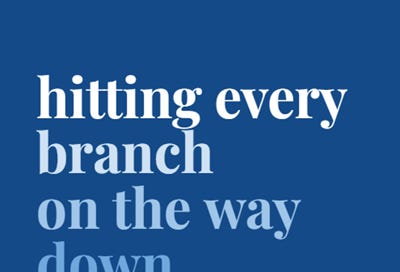This was originally going to be a little article about the blessing of modern vaccines.
But then life got a bit busy, so I put off publishing this newsletter for a little while. After all, an anti-anti-vax rant is practically timeless, right?
Now, though… it seems more relevant than ever.
The Too-Short Youth of Two Brothers
Guy Kay Hall, one of my great-great-grandfathers, was born in April of 1891 in a tiny rural community in Ritchie County, West Virginia. He was the second son of Francis Marion and Barbara (née Crites) Hall, ultimately one of at least eight children.
He was counted on the 1900 census with his parents and siblings, still in West Virginia. But by the time the next census rolled around in 1910, Francis Marion had died. Barbara and her four youngest surviving children had moved to Ohio, where Barbara worked as a servant for a wealthy family.
The 19-year-old Guy Kay Hall had moved into a boarding house way out in Oklahoma. He worked as a teamster – a wagon driver – there in the oil fields. As the “man” of the family, this hard-working boy sent every spare penny back to his widowed mother and little brothers and sisters.
Wait… didn’t he have an older brother? Why would Guy end up being his family’s primary provider at such a young age?
Guy Kay’s older brother, Ora W. Hall, died at the age of 17 in the late spring 1904 — of measles.
There are a variety of causes of death in the pages of this book: pneumonia, consumption, influenza, unspecified fevers, simply old age, even one murder.
And aside from old age and murder, do you know what most of these deaths had in common?
Modern medicine makes them mostly (almost entirely!) preventable today.
Let’s not forget that things like vaccines and antibiotics exist for good reason and we can — and should — use them responsibly. It wasn’t that long ago that our ancestors were regularly suffering and our families were being torn apart by these diseases. This shouldn’t be happening again in our own time.
Now, More Than Ever
This is part of the story of our species. Illnesses threaten our livelihoods. Diseases take our friends and family members from us. Epidemics have even changed or endangered or flat-out ended entire cultures.
But our species also has a special gift. That is the ability to see it coming, to understand what is happening — and to maybe even do something about it.
For a certain group of people, that means a lot of hard work right now: caring for the sick, studying the disease, or trying to come up with better prevention and treatment. Possibly even a vaccine.
For the rest of us, it means doing our damnedest to help those people help us. And unless you haven’t been paying attention at all to the news, you already know what that means. Stay home if you’re sick. Avoid other people even if you’re not. Wash your hands.
I am certain that a few decades from now, someone will be writing another newsletter about how their own ancestors dealt with what is, to them, an easily preventable — practically forgotten! — disease. My hope is that the lessons we’re (re-)learning now about how to keep each other safe will not be so soon forgotten.



